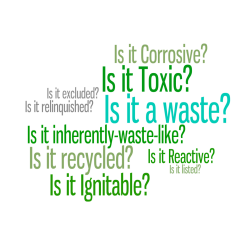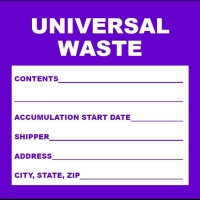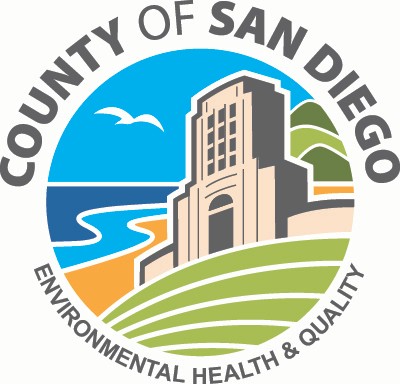Hazardous Waste Determination

It is the generator’s responsibility to determine whether or not a waste must be stored, transported and disposed of as a hazardous waste. Often this determination can be made by knowledge of the process and materials used that generated the waste. However, questionable waste streams may need to be chemically or physically analyzed. All analyses done by the generator must be completed by certified laboratories using specified procedures. A generator may, upon payment of a fee (HSC 25205.8), apply to the California Department of Toxic Substances Control (DTSC) and obtain concurrence as to whether a particular waste stream is hazardous or non-hazardous.
DTSC Defining Hazardous Waste Guidance
Is Universal Waste Hazardous?
Laws adopted in 2000 created California’s Universal Waste Rule to simplify how we manage many common hazardous wastes. All universal wastes are hazardous wastes and without the new rules, they would have to be managed under the same stringent standards as other hazardous wastes.
You may contact the Hazardous Materials Duty Desk at (858) 505-6880 for information regarding certified testing laboratories, testing procedures and required documentation.






